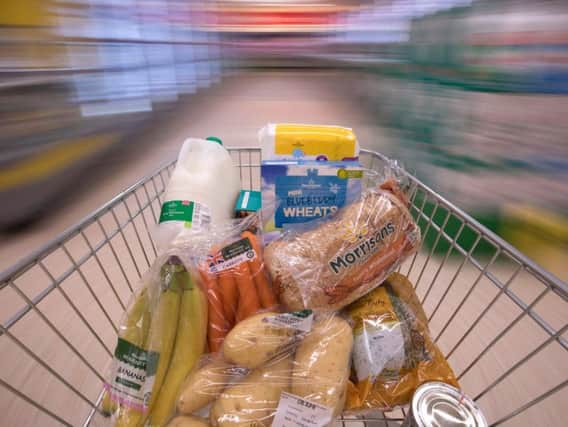Food prices increases speed up after hot weather and cold spring hit fruit and vegetable costs


Food inflation rose to 1.6% in July from the 1.2% seen in June and May as according to the BRC-Nielsen Shop Price Index, with fresh food prices increasing by 1.2% in July from 0.8% the month before.
Overall shop prices fell by 0.3%, slowing from 0.5% the month before.
Advertisement
Hide AdAdvertisement
Hide AdThe British Retail Consortium said it expected the hot, dry conditions to result in pressure on prices "for some time to come".
July also saw non-food items reach their lowest level of deflation since December 2017 at 1.4% in July from 1.6% in June, the lowest rate of deflation since December.
British Retail Consortium chief executive Helen Dickinson said: "We expect this period of food price inflation to continue in coming months as despite global oil, food and commodities prices shrinking recently, the hot, dry conditions we have seen across the northern hemisphere means the pressure on prices will continue for some time to come.
"These global pressures on food prices in particular are yet further demonstration of the need for an agreement on the backstop to ensure frictionless trade is maintained after the 29 March 2019 if retailers are to maintain value and choice for consumers."
Advertisement
Hide AdAdvertisement
Hide AdNielsen head of retailer and business insight, Mike Watkins, said: "The slight increase in food inflation over the early summer has been offset by increased demand for food and drink as the result of the heatwave and incremental spend around the World Cup.
"Looking ahead, with weather related changes in commodity markets anticipated, fluctuating currencies and wavering consumer spending, retailers still need to minimise price increases, as the underlying trading conditions across the retail industry remain challenging."